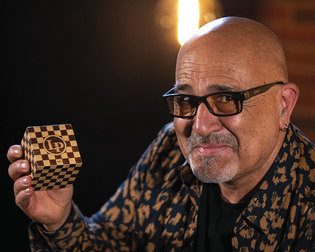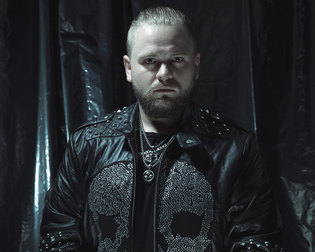Vincent Bach was born in 1890 as Vincenz Schrotenbach in Baden, near Vienna. He grew up in a household in which singing and theatre productions were regular leisure activities. He began taking violin lessons at the age of six. But he soon played truant and finally stopped completely. The reason he gave was: "If I held the bow wrongly, I felt the teacher's heavy cane on my hand.
After attending a grandiose performance by the Viennese Tonkuenstler Orchestra, the young Vincenz Schrotenbach was thrilled by the trumpet. At this time, his mother had remarried and his new stepfather had a bad impression of music because he thought that musicians were ‘lazy people‘ who ‘just want to have a good time‘. Undeterred by this, Vincenz saved his lunch money, bought a used trumpet and began practicing in a nearby room out of earshot of his disapproving stepfather. The young man's talent was unmistakable and soon he took lessons with the legendary Georg Stellwagen, a solo trumpeter in the Tonkünstler Orchestra. At the youthful age of 15 he enrolled - at his stepfather's insistence - at the Vienna School of Mechanical Engineering.
After graduating in 1911, Vincenz Schrotenbach took a job as an engineer in the development of elevators and lifts. However, he played three to four nights a week at societies and clubs in Vienna. When an English opera house director heard him one day and offered him payment for a concert tour, he quit his job and soon performed all over Europe. At the suggestion of this opera director, Vincenz Schrotenbach changed his stage name to Vincent Bach. One of his first performances was in an animal show. While waiting to go on stage, he accidentally bumped into the cage of an alligator and was bitten by one of the animals. Despite this accident Vincent still performed the show.
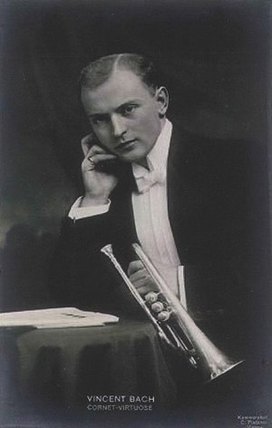
Vincent Bach came to New York with just $5 in his pocket
1914 was a decisive year in Bach's life. At that time he was performing in England when the First World War broke out. As an Austrian citizen, he was no longer able to leave England and he risked a long imprisonment as he was now considered an enemy of the country. To escape arrest, he pretended to be a Swedish citizen. Thus Bach managed to get on board a ship to New York City.
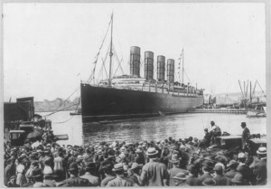
Arriving with only $5 in his pocket, he quickly found employment as a musician; first with Oscar Hammerstein's Lexington Opera House and later with the Boston Symphony Orchestra and the Diaghilev Ballet Orchestra at the Metropolitan Opera. In 1917, when the USA also joined World War I, Bach was drafted into the 306th Field Artillery Regiment as Kapellmeister. There Vincent had a lot of free time, which he used to experiment with the construction and improvement of mouthpieces.
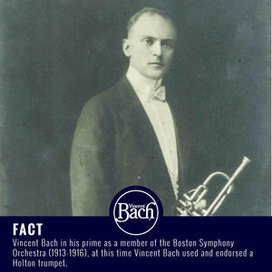
A year earlier, a craftsman in Pittsburgh had accidentally damaged Bach's favourite mouthpiece while removing a dent. Bach spent the next 12 months trying to repair the damage himself. This gave him a feeling for the relationship between bore, cup size and rim shape. He finally convinced the managers of the Selmer store in New York to let him use their lathe and he began to make a few mouthpieces. One of them increased his range by a fifth. When some musicians realised that this mouthpiece made it possible to hit a high F, Vincent Bach was literally flooded with orders for them.
Photos: Conn-Selmer Inc.


